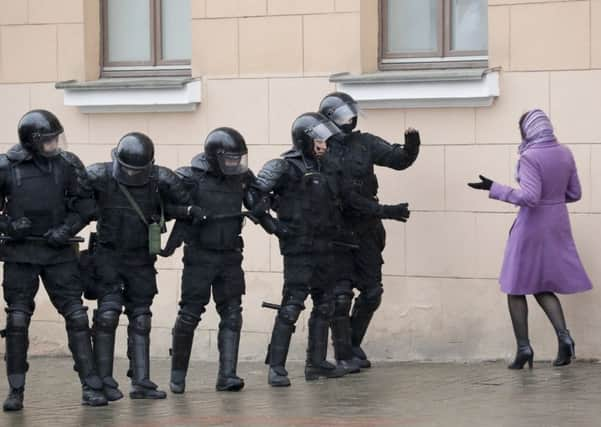Belarus protesters clash with police over '˜parasites tax'


Police yesterday began arresting protesters after blocking the march using a cordon of riot police wielding clubs and holding shields.
Belarus has seen a wave of protests over the past two months against President Alexander Lukashenko, who has ruled since 1994.
Advertisement
Hide AdAdvertisement
Hide Ad“They’re beating the participants, dragging women by the hair to buses. I was able to run to a nearby courtyard,” demonstrator Alexander Ponomarev said. The march took place on the 99th anniversary of the proclamation of the Belarusian People’s Republic, which lasted just six months when it was formed in 1918.
Earlier, police raided the office of the human rights group Vesna. About 30 of its activists were detained, the Belarusian Helsinki Committee said.
In the days leading up to the demonstration, more than 100 opposition supporters were sentenced to jail terms of three to 15 days, Vesna reported before the raid.
Prominent opposition figure Vladimir Neklayev was reportedly pulled off a train by police during the night as he tried to travel to Minsk.
In Romania last month hundreds of thousands of people took to the streets for days in protest at a bill decriminalising official misconduct.
Yesterday’s demonstrators in Belarus shouted “shame” and “basta [enough]” and deployed the opposition’s red and white flag, first used by the independent Belarusian People’s Republic in 1918 and again after independence from the Soviet Union.
In his 23 years as president, Lukashenko has stifled dissent and free media and retained much of the Soviet-style command economy.
The protests this year initially focused on his unpopular “anti-parasite” law that calls for a £185 tax on anyone who works less than six months a year, but does not register with the state labour exchange.
But the protests broadened into general dissatisfaction with his rule, which some critics have characterised as Europe’s last dictatorship.